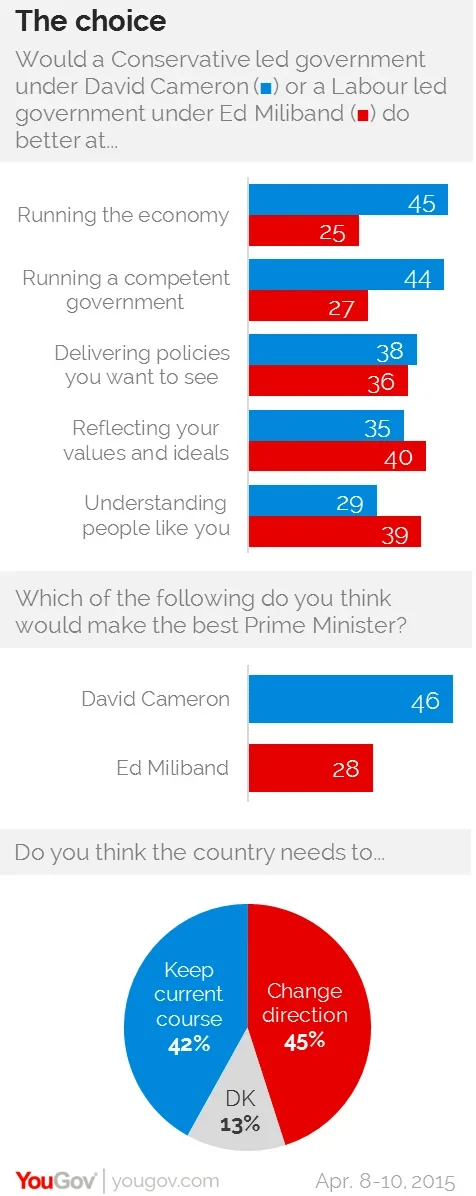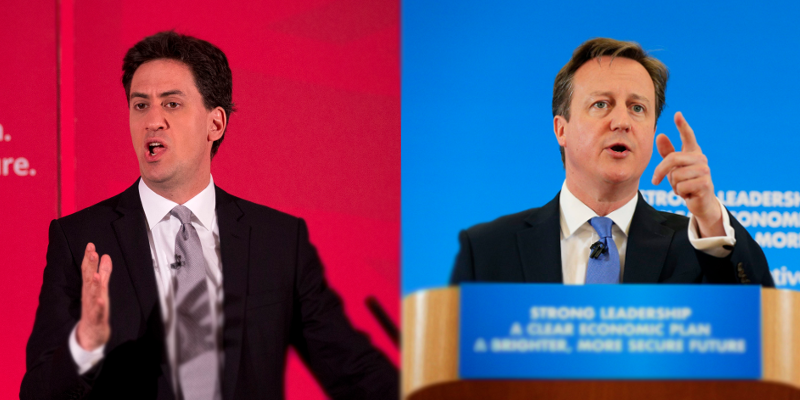David Cameron has the benefit of a simple message, but Labour's cloudy picture has its own advantages
The scrappier part of the campaign has started, with the parties now behaving like street fighters throwing below-the-belt punches. But the polls are not yet showing us any real shift out of the stalemate zone. What can the parties do to change that? For the Conservatives, it’s all about simplifying the current complexity into a simple binary choice; but for Labour it’s the opposite, blurring the picture as much as possible.
YouGov’s constituency level “Nowcast”, based on more than 20,000 interviews over the past five days, projects Labour ahead by 13 seats. But most expert predictions point the other way, as they apply an experience-based hunch about how things will shift over the campaign. Their key assumption is that voter perceptions of an improving economy will increase the desire for continuity. You can see hints of that potential shift in the 7% lead for a Conservative/Cameron-led government over a Labour/ Miliband-led one when that binary is the only choice offered.
To test the strength of that assumption, I asked voters to make seven additional binary choices. The Conservatives beat Labour by two points on delivering the policies people want, by 17 points on running a competent government, and by 20 points on doing a better job with the economy. Labour beat the Tories by five points on reflecting their values and by ten points on understanding “people like yourself”. Increased spending to safeguard public services beats deficit reduction by 12 points. But people think that David Cameron would make the better prime minister by 18 points.

You can weight their relevant importance in many ways, but it’s hard to see the Conservatives as anything but ahead. The biggest swing factor is the willingness of Ukip supporters to swing back to the Conservatives. They actually prefer Mr Cameron by a whopping 39 points, but remain his main obstacle to remaining prime minister: my poll actually shows them to be the group most determined to stick by their party.
Still, it looks as if Mr Cameron has the better hand to play, with a single and simple message that aligns with natural human risk aversion. It can be stated in four words, “Don’t wreck the economy”. By contrast, Ed Miliband’s “change” message is complicated, and he appears incapable of simplifying it.
Ironically, that reluctance to be decisive may turn out to be a good thing for him. He loses when the choices are clear, but he could win if they remain complex and cloudy. It has always been Labour’s strategy to defy the broad easy logic of “change-versus-continuity” with a series of micro-victories delivering just enough constituencies, helped by the still-favourable boundaries. So Mr Miliband’s natural inclinations play nicely into what is his best strategy: blurring the choices as much as possible.
This commentary appeared first in the Times










